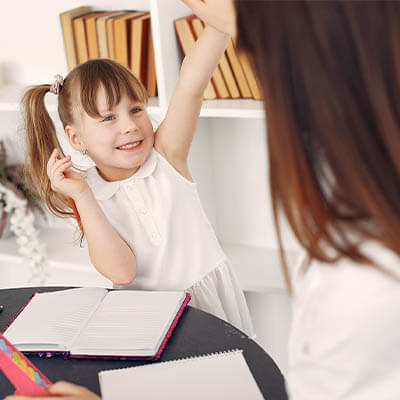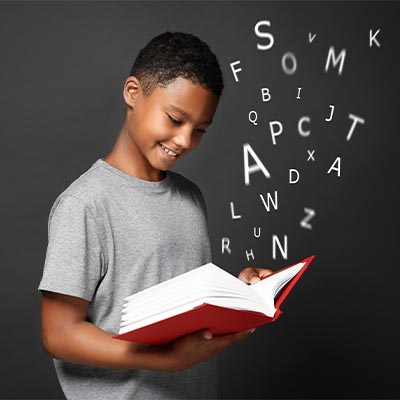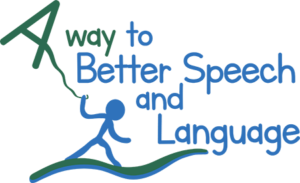MY SERVICES
Speech and Language Therapy
I offer teletherapy for articulation, auditory processing, apraxia, receptive and expressive language, and aphasia

The sounds that a child can produce
If children have difficulty with articulation, you may hear it described as an ‘articulation disorder’ or ‘phonological disorder’
If children have difficulty with articulation they may have trouble producing sounds such as /k/, /g/, /s/, /z/, /r/, or /th/
Children may have difficulty with articulation due to incorrect tongue placement or a lisp.
If children have difficulty with articulation it may impact a listeners ability to understand what the child is saying, so they cannot effectively communicate with peers or adults; a parent may have to act as a translator

Is the perceptual processing of auditory information in the central auditory nervous system (CANS) and the neurobiological activity that underlies that processing and gives rise to electrophysiologic auditory potentials (American Speech-Language-Hearing Association [ASHA], 2005).
This may also be described as ‘central auditory processing’, ‘language processing disorder’, or ‘auditory information processing disorder’
If children have difficulty with auditory processing, they may have trouble with auditory discrimination – they may not ‘hear’ the sounds of speech efficiently and may have trouble attaching meaning to those sounds.; this may also cause trouble with phonologic processing, reading decoding and comprehension, and spelling; they may have difficulty with aspects of language development, including learning age-appropriate vocabulary, morphology, syntax, and semantics
If children have difficulty with auditory processing, they may have trouble with binaural processing – they may not be able synthesize, manipulate, or attach meaning to incoming auditory information; they may be overwhelmed by the amount information they are hearing and this may negatively impact comprehension skills, writing, note-taking, and following directions
If children have difficulty with auditory processing, they may have trouble with temporal processing – they may have difficulty with reading, spelling, direction following, note-taking, written expression, sequencing, auditory attention, working memory, problem-solving, writing, speaking, and understanding sarcasm
If children have difficulty with auditory processing they may have trouble listening at school and at home

A motor speech disorder; messages from the brain to the mouth do not get through correctly
Children with CAS (Childhood Apraxia of Speech) may not be able to move their lips or tongue the way they need to for correct production of speech sounds and connected speech sounds
If children have difficulty with apraxia they may say the same word differently each time it is produced; distort or change sounds; put the emphasis on the wrong syllable or word; have difficulty saying longer words
If children have apraxia, it may be called ‘verbal dyspraxia’ or ‘developmental apraxia’
Children with CAS do not outgrow it; they will need treatment to make progress

What a child can say to communicate their wants, needs, ideas, thoughts, and opinions
If children have difficulty with expressive language, they may have trouble formulating and producing intelligible phrases or sentences
Children may have difficulty with word order in sentences, grammatical structures, repeating, or deleting words
Children may have difficulty engaging in conversations, asking or answering questions, telling stories, and expressing their feelings in the classroom and during daily interactions with peers and adults
What a child can understand so they can listen, follow directions, answer questions, recall information, and understand new material
If children have difficulty with receptive language they may have trouble understanding new vocabulary and the meaning of words they hear and read
Children may have difficulty understanding new lessons or concepts, paying attention in class, following directions, answering questions, and understanding new vocabulary presented in classes throughout the school day

is a language disorder that happens when the brain is damaged.
Damage on the left side of the brain may lead to language problems; Damage on the right side of the brain may cause other difficulty with poor attention or memory.
If you have aphasia you may have difficulty understanding, talking, reading, or writing.


Children and Teens
I also provide coaching services for early intervention to provide strategies on how to encourage speech and language development during daily routines and play.
Benefits
Why Choose Teletherapy?
It works! People have been providing teletherapy services for years. Research has shown that it is as effective as in person therapy for many people. I have been providing teletherapy sessions since March 2020. My students have made progress toward their speech and language goals.

Therapy is provided in the comfort of your own home. No packing up the kids with toys and snacks, driving to a building, waiting, packing back up and driving home. Just log in at your session time. Receive high quality speech and language therapy and log off at the end of the session.
PRICING
SERVICE RATES
Speech therapy sessions are available for children and adults.
Initial consultations – up to ½ hour – complimentary
Consultation services for advocacy services and/or strategies to use at home
in lieu of direct therapy sessions – weekly, biweekly, monthly
Teletherapy
I provide individual teletherapy with in-home options (case-to-case basis). Sessions include direct therapy time and communication with parent/family.
- Collaboration with other professionals – varies by time
- Report writing – upon request – varies by time
- Fees are payable on the day of the session
- Accepting only private pay at this time
Get Your Free 30-minute Consultation
Please fill out the contact form and you will then be directed to my online booking system where you can schedule a free consultation.






